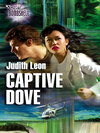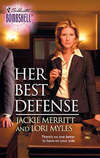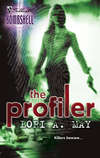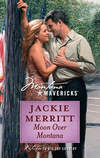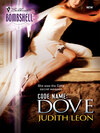Kitabı oku: «Captive Dove», sayfa 3
Chapter 7
N ova’s photo agent, Deirdre LeDoux—her name matched her flamboyant looks—stepped onto the squat platform at the Franke Gallery of Fine Photography. She’d piled her blond hair up in dramatic swirls and wore a purple, floor-length Dolce & Gabbana that would also be smashing on her look-alike, Charlize Theron. The string quartet had just finished playing Vivaldi’s “Spring” Concerto and fell silent. Deirdre said huskily into the microphone, “May I have your attention, please.”
The one hundred invited guests cruising the gallery floor, most of them dressed in black tie or a gown equal to Deirdre’s, turned toward Deirdre and wound down their chitchat. A last sip of champagne. A final bite of foie gras or Russian caviar.
Deirdre had explained that half the guests were already Nova Blair collectors, eager to meet the photographer and perhaps buy something new from Nova’s collection of Scenic Ocean Drives of the World—at prices ranging from one thousand to fifty thousand dollars. Nova always felt squeamish about the prices Deirdre insisted upon. Taking the pictures was its own payoff in the pleasure she derived from it, even when capturing the image involved danger or hardship. Especially then. But, as Deirdre relished repeating, when hazard and beauty were brilliantly combined they merited very special recognition. Such works always brought the highest prices, and Deirdre, from the beginning of their seven-year friendship, had put Nova in that elite class.
“I see you are all enjoying yourselves,” Deirdre said. “I’ve interrupted just briefly because I want to share with you, and with Nova, the announcement that her photo of A Boy and Butterflies has just been awarded The Nature Conservancy’s photo of the year. Their top prize.”
All gazes switched to Nova, and enthusiastic applause showered her. She felt the warming glow of a blush of pleasure and surprise.
Deirdre finished. “Now please, do continue to enjoy your evening.” She stepped down and slipped her arm around Nova’s waist. Deirdre’s perfume, Llang Llang Myrrh, enveloped them. The quartet resumed its mood-setting, Canon by Pachelbel.
“Nice surprise, huh?” Deirdre enthused. “Come, I want to introduce you to the mayor’s assistant. She loves photography and her husband is a nature freak. He’s always off on wilderness trips. Do what you can to sell her a photo and maybe you can sell her hubby a tour as an added bonus.”
They were halfway across the room, the two of them smiling, shaking hands and kissing cheeks as they walked, when Deirdre’s assistant, Donnie, approached. He said, “There’s a call for you, Ms. Blair. He says to tell you it’s Smitty.”
The pleasurable fizzing of her spirit flattened immediately into alarm. She grabbed at a straw of hope. Maybe it’s nothing serious.
But of course it was serious. The CIA never called her when there was “nothing serious.” To her surprise, she also felt a quick burn of excitement. Over five months had passed since her last Company assignment, and her subconscious was apparently eager for action.
“Where can I have a little privacy?”
Donnie led the way. Over the phone and sounding tense, Smith said they needed her as quickly as was convenient this evening. He gave her the name of the hotel and the room number where he would be waiting. “How long do you think you’ll be?”
“I can finish up here in thirty minutes. I’ll see you within the hour.”
She left hearing good news. “I’ve sold three photos,” Deirdre said, looking relieved. “We’ll for sure make expenses, and probably then some.”
“There were nine tourists and a guide,” Leland Smith said. “The boat captain was knocked out and tied up.”
Smith lounged in a green wingback chair opposite Nova, a hotel table between them, a Scotch and soda in his hand. He wore a plain brown suit and white shirt, tieless and open at the neck. Plain brown shoes. Plain brown hair. She had met in person with “Smitty” twice before, and each time she had had a hard time afterward remembering exactly what his face looked like. The perfect CIA field agent or controller.
Smith’s assistant, Marvin King, sat propped up in the queen-size bed with his back against the headboard. Marvin, a light-skinned black man who wore elegant gold-rimmed glasses, would never be nearly so invisible.
Smith continued. “The note that came with the severed hand says that the hand belongs—belonged—to Ellis Stone, Colette Stone’s husband, and that he’s dead.”
“The Colette Stone?”
“Exactly. So what the bastards have is nine tourists and the guide, ten hostages in all, one of them the rather famous niece of the U.S. vice president.”
“You know, I think I will have that drink,” Nova said to Marvin. He rose. She detested the vice president, who had never seen a forest he didn’t feel needed harvesting or an oil field that didn’t beg to be drained. She added, “Is the hand Stone’s?”
“Yes. Confirmed by fingerprints and DNA.”
“Who received the package?”
“Came by express mail to the secretary of defense with instructions to forward it to the office of the vice president. We might not be able to pin down the actual origin.”
“Fifty million is a lot of dollars.” She took the Scotch and soda from Marvin and sipped. Chilled. A nice burn. Marvin returned to his perch on the bed.
Smith said, “They hold major bargaining chips. In addition to Colette Stone—well—” He reached into a leather briefcase on the table beside his chair, extracted a sheet of paper from a folder and handed her a list of names. She read them, sipping the drink, as he continued. “You see Colette’s and Ellis’s names at the top. Kimball Kiff is the birding tour’s leader. Kiff’s the curator of birds at the Los Angeles County Museum of Natural History and has taken other clients on the same trip three times before.
“Redmond Obst, it seems, is what they call a world-class birder. He keeps a list of all the species he’s seen, a world list, because he’s been to so many places. He’s a personal friend of the leader, Kiff. Ronnie Obst is his sixteen-year-old son and is also considered a serious birder. Alex Hailey Hill is the grandson of our Supreme Court Justice, Suleema Johnson. He likes the outdoors but isn’t an especially big fan of birding. He and the Obst boy are best buddies.”
“I like Justice Johnson. This will certainly be frightening for her.”
Seeing the next two names, she caught her breath. Nancy and Otis Benning were among the most enthusiastic collectors of her work. Smith saw her reaction. He said, “You know the Bennings?”
Nova had first met the famous Washington, D.C. socialite, Nancy Benning, about six years ago at a party at the French Embassy. Nova had been undercover as a cocktail girl, tailing the wife of a Saudi diplomat newly arrived from Saudi Arabia and due to return to her home within the week, Nova still on her tail. Nancy Benning had spilled a Bloody Mary on her dress and Nova had helped with a cleanup in the ladies room.
Their second meeting, the one Benning would remember, happened at Nova’s second D.C. photo showing. Nancy Benning had purchased a scene of thousands of pink and white flamingos lifting off from a remote, unnamed lake in Kenya. “I’ve met Mrs. Benning. She loves birds. She’s purchased at least one of my photos.”
“Well then you may know that her husband, Otis, owns Benning Corp. Big into plastics. Rolling in dough, the both of them.”
“Fifty million dollars is suddenly sounding like peanuts. Or like the kidnappers don’t really know the identity of all the fish they’ve caught. Something’s strange. Have they not contacted anyone else, just the vice president?”
“Maybe it’s still too early. But to answer your question, the only ransom demand so far is the one centered on Colette Stone.”
Nova looked at the remaining names. “Who are Linda Stokes and Annette Coulson?”
“Stokes is a librarian from San Diego. Coulson is a dance teacher, also from San Diego. They’re friends and enthusiastic bird watchers. Dennis Chu, the last on the list, is an entomologist from NMNH, the National Museum of Natural History. Apparently pretty famous in his own world.”
Seeing her frown of puzzlement, Smith added, “Insect expert. According to the NMNH people in Washington, he took the trip because he wanted to collect bugs in the Amazon. He has no real interest in birds.”
“Clearly they’re holding some pretty important people, but what do you want with me? If you pay the money, you’ll probably get them back.” In truth she was skeptical of that last statement and knew that Smith would discount any such hope as well.
Smith leaned forward, eager to reach her with his argument. So far, only one man was dead. This wasn’t the kind of op Nova normally considered working and Smith knew it. In every case that she had worked, multiple innocent people had already been killed or the threat posed was the kind that could result in the deaths of many people. In her last case, in Amalfi, thousands if not million of lives had been on the line, justifying, in a way, the dirty work that Company jobs too often entailed.
“The State Department has already put together an FBI team,” he said. “They are on their way to Manaus and will officially work with the Brazilian authorities. But these hostages are high profile. The vice president wants us to do more, much more, than that. Christ, Nova, they have his niece! We have orders to send down a crack undercover team. At least undercover in terms of being U.S. government. We want someone who can go down there saying they are looking to find a relative, one of the hostages, and be convincing. We want you.”
She said nothing, just took another sip.
“No one in this government is going to depend on the Brazilians to get our people out. And no one is going to sit around hoping that when the money is paid, the bastards will keep their word and let everyone go. The plan is to locate the hostages and then send in a special operations team to extract them. You know Brazil. Even better, you know Manaus and the Rio Negro. You’ve been there, how many times?”
“Seven trips to Brazil, four of them included stops in or around Manaus.”
“You speak Spanish fluently, and some Portuguese, right?”
“No real Portuguese.”
“And then there is your main advantage, always your strongest asset. You’re a woman, who can put on a great act of being helpless and nonthreatening.”
She smiled, feeling a bit devilish and wanting to tweak Smith a bit. “Well, there’s something else to consider. I detest vice president Ransome. I have no desire to do anything to help that SOB.”
Chapter 8
S ixty-three-year-old U.S. Supreme Court Justice Suleema Johnson stooped slowly to the sofa. She picked up and cradled her calico cat, Hypatia, and headed for her bedroom. “I’m tired, my dear. It’s been a long one,” she said, bone-weary but smiling. Hypatia was named for the famous mathematician who had lived in ancient Alexandria and was stoned to death by a mob led by the Catholic priest, Cyril. She was Suleema’s closest confidante, privy to Suleema’s most private thoughts and desires. Suleema considered Hypatia to be as wise as the woman for whom she’d been named.
After an especially tedious, work-filled day, Suleema had decided to retire early. Tomorrow she would hear arguments in the case of Wade v. Lemonn—very technical stuff on the patent rights of biopharmaceutical companies. Although it was barely eight o’clock, the arthritis in her hips and lower back cried out for her to lie flat.
Fortunately, this house suited her aging body perfectly, since the previous owners had redesigned it to place the master bedroom on the first floor. She’d purchased the house a little over a year ago, just before her swearing in as the first black woman to serve on her country’s highest court. The location was ideal for getting to and from her office at the court and was only an hour and a half’s drive from her daughter’s lovely home right on the Chesapeake Bay.
Suleema had calculated that on occasion, Regina and Clevon might want to stay in Washington for an evening at Lincoln Center for a fancy dinner or show, so in her home, they had an upstairs bedroom to themselves. But sixteen-year-old Alex was getting too old to visit Grandma anymore.
She flicked off the living room floor lamp and eased down the hallway. Alex was, at this very moment, off someplace in the Amazon birding with his buddy, Ronnie Obst. Suleema had met the young Obst once, at Regina’s house. She had liked him, and thought him a good friend for Alex. Alex, so exceptionally bright and mature for his age, was too serious. Ronnie was outgoing and adventurous and had traveled all over the world with his rather famous father. Ronnie encouraged Alex, who had been more devoted to his computer than to nature before their friendship, to get out and explore life.
She used the wall switch to light her nightstand lamp. Another night of sleeping alone. Her gaze was drawn to her favorite photograph of Raymond, gone from a heart attack for just over five years. He’d not lived to see her elevated from the Ninth Circuit Court, but he’d always believed she had a good chance to be “the one.”
Hypatia wiggled, and Suleema let her drop onto the quilt.
“I know it’ll happen,” Raymond had said. “You’re the smartest woman, the smartest person, I’ve ever known, Sulee. You’re a natural for the Supremes.”
He’d been right. He was a building contractor, the practical one, she the one who lived a life of the mind. They’d been a great match. The place in her chest where her heart had been ripped away by his death still throbbed with longing and loss.
It took no more than ten minutes to undress, snuggle into a cotton nightgown and down under the covers. Hypatia curled up at her hip. She’d never had trouble sleeping, and quickly drifted into the state of fractured thoughts that came just before full unconsciousness. Then she heard a sound.
What was it?
Silence. She let her mind drift again.
Another sound, a definite click. She stiffened in the bed, eyes open, peering at the dark ceiling, ears straining.
Hypatia lifted her head from her paws and looked toward the bedroom door. Suleema sat up halfway on one elbow, peering into shadows formed behind moonlight flooding through the bay window, and then a shadow, dark as a cave, blocked off the pale glow. A gloved hand grabbed her throat and shoved her back down into the bed.
The man, it had to be a man, knelt so that he forced one leg between hers, right through the covers. He grabbed Hypatia by the scruff and lifted the calico into the air.
Suleema clawed at the gloved hand, unable to suck in even a tiny breath. She raked her fingers down his sleeve. He leaned on her, his weight that of a man at least as tall as Raymond’s six feet.
“If you don’t want me to kill your cat,” the dark shadow said, “lay still.”
Lie still! Shouldn’t she fight for her life?
Could she even fight for her life? She was sixty-three years old! His hand felt huge, his body enormous. He was probably going to rape and kill her, and there wasn’t a damn thing she could do about it.
She tried to say, “Can’t breathe,” but no words would come out.
“You gonna lay still?” he said. He spoke softly, an ominous near-whisper, but clearly and with authority. He moved so that some light fell on him and she saw that his head was bald and he wore only one gold earring.
He wasn’t masked, not hiding his identity. Yes, he was going to kill her.
He let up enough on her throat for her to drag in a choked breath, then another.
He sat Hypatia on her chest. “I could kill this cat right now. I could kill you right now. Right?”
She nodded. Clever Hypatia leaped off the bed and headed for a safer place.
“I got in here, I can get to you anywhere. I have a message for you. You listening?”
Again she nodded. That seemed to be all he wanted from her so far. To listen. Her mind was going lickety-split, thinking what a woman was supposed to do. Try and talk to him.
“The Supreme Court’s decision in the case of Sharansky versus the United States Government is due in eight days. On the twenty-seventh of December. I’m telling you that you are to vote against Sharansky.”
This is insane. It doesn’t make any sense. What the hell is he saying?
“You hear me? In Sharansky versus the U.S. Government, you are to vote against Sharansky. And if you don’t, your grandson, Alex Hailey Hill, will be killed.”
She got it. He was here to make her vote for the U.S. Government in this bitterly fought case brought by New Hampshire’s lieutenant governor and the lieutenant governors of seven other states. The court was split. Their deliberations were secret, but it was widely assumed that the decision would be up to the new justice, Suleema Johnson, the swing vote, the tiebreaker. And this assumption was, in fact, correct. And someone choking off her breath claimed to be able to kill Alex unless she voted against her conscience and her judgment.
But Alex wasn’t even in the country. The threat seemed preposterous.
“Now here’s the way it’s going to be,” he said. He leaned his knee hard into her groin. “You will not tell anyone—and I mean anyone—what I’ve just told you. You will vote for the government. That is why I’m here. To make sure you do. If you tell anyone, the boy will be killed. You understand?”
She nodded, wondering who she could safely tell. Someone would have to be told.
“I know that when I leave, you’ll want to call your daughter to check whether the boy is safe or not. Don’t. She won’t know yet that we have him. Your calling would tip her off you know something you shouldn’t, and we will be listening.”
The very mention of Regina from this thug sent Suleema’s mind bounding off in a rabbitlike panic.
“You just wait a day. Watch the news. Maybe give your daughter a call tomorrow. She’s in for a nasty surprise.”
“Get off me!” she managed to hiss out.
With his free hand, he pulled something from his pocket. A knife. The blade—short and thick and serrated along the top—gleamed silver in the moonlight.
One quick stroke toward her chest. She felt nothing at first, then a stinging sensation and then liquid trickling warmly across her skin.
“That’s just a little taste,” he said, his voice still that ominous whisper, “of what could happen to the boy. And to you.”
He released her, stood, turned and strode out of the bedroom.
Suleema lay still, afraid to even move enough to touch her chest. How badly had he cut her? Maybe he was still in the house.
No. He’d want to get out.
She forced her hand to move, touched the cut beneath the cotton, and felt a surge of relief that it was sticky but superficial.
She should get up. Call 9–1-1. Call the federal marshal’s office.
But what if he, or whoever had sent him, did have Alex? How could that possibly be? Maybe Alex hadn’t gone on the trip. Maybe they had taken him from school. Kidnapping was FBI responsibility. She must call the FBI, of course, not 9–1-1.
But the FBI could only help if Alex was in the States. Wasn’t that so? What if Alex wasn’t? She crossed her hands as if lying in a casket and hugged herself, still terrified to get out of the bed, nightmare images and thoughts scrambling through her head. How could they know how much Alex meant to her? The man had been so confident that he wasn’t even wearing a mask.
What if she didn’t call the FBI at once, if she waited until tomorrow to call Regina to find out if the threat was real? If she called the federal marshals, they would insist on putting a bodyguard on her, even when she was away from the court. Except occasionally at high-profile speaking engagements she had never felt the need for a bodyguard, provided when requested to Supreme Court judges by the marshal’s office. Until now. Having her driver, Sam, with her had been reassurance enough. Asking for protection now would wave a red flag.
Someone was trying to influence the vote of a justice of the United States Supreme Court. Surely duty required her to call in the authorities at once.
But at the risk of Alex’s life?
